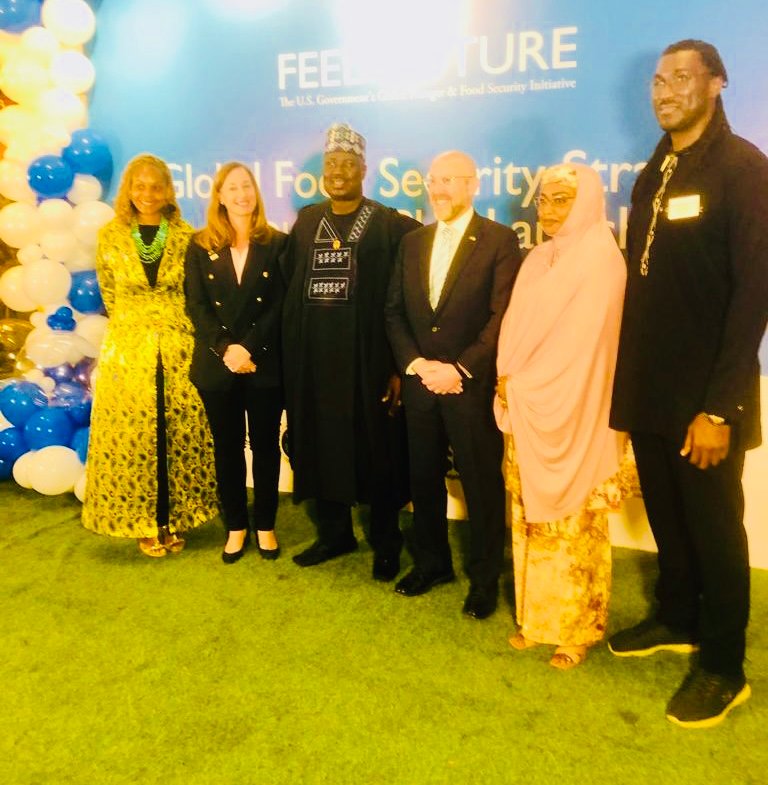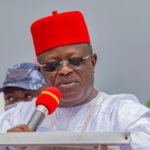
3rd right; Mr David Greene, U.S. Embassy's Charge d'Affaires, with other participants at the unveiling of a five-year Global Food Security Strategic Country Plan for Nigeria.
U.S., Nigeria, others unveil food security strategic country plan
By Mark Longyen The U.S. government has partnered Nigeria, among others, to unveil a five-year Global Food Security Strategic Country Plan to boost the country’s agricultural sector and drive agro-economic…








